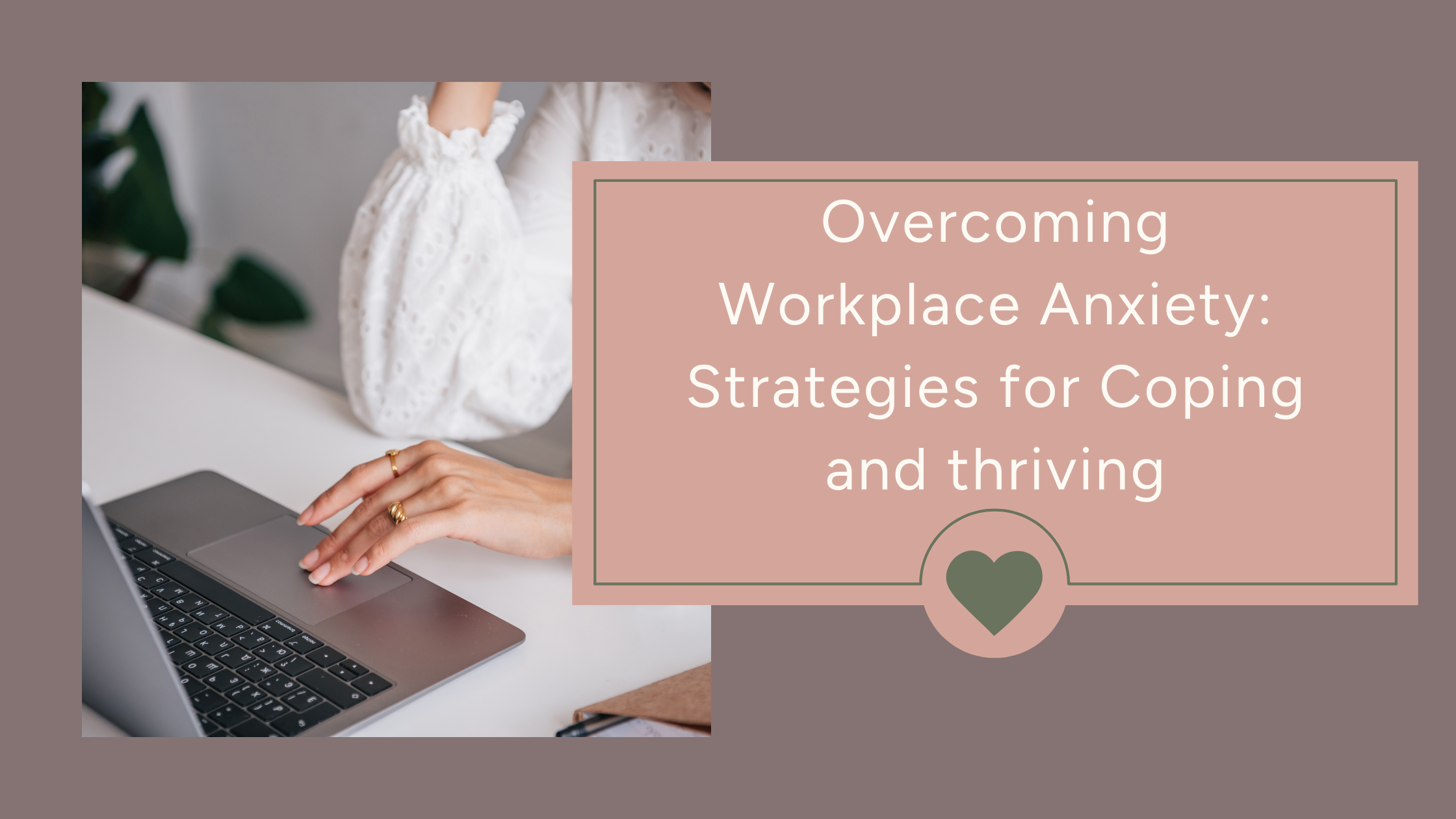
In today’s fast-paced work environments, anxiety has become a prevalent issue affecting many individuals. The pressure to perform, meet deadlines, and navigate interpersonal dynamics can all contribute to heightened stress levels in the workplace.
Recognising the triggers that lead to anxiety at work is a crucial first step towards effectively managing this condition. Understanding what situations or tasks provoke feelings of anxiety can empower individuals to develop targeted coping strategies.
Implementing stress management techniques is key to fostering a healthier work environment. Embracing practices such as mindfulness, meditation, and deep breathing exercises can provide employees with valuable tools to mitigate stress and promote emotional well-being.
By honing coping skills and resilience-building practices, individuals can not only navigate workplace challenges but also thrive in the face of adversity. Prioritising mental health and adopting proactive strategies for managing anxiety can significantly enhance overall productivity and job satisfaction.
Workplace anxiety is a common experience that many individuals face in professional settings. It can stem from various factors that contribute to feelings of stress and unease, affecting overall well-being and productivity.
Several factors can lead to workplace anxiety, including job insecurity, high workload, conflicts with colleagues, and lack of control over tasks and decisions. Job insecurity, where employees feel uncertain about the stability of their position, can create a constant state of worry and fear. A heavy workload can overwhelm individuals, causing stress and anxiety about meeting deadlines and expectations. Conflicts with colleagues or superiors can create a tense work environment, leading to feelings of unease and discomfort. Moreover, a lack of control over one’s work processes and outcomes can heighten feelings of anxiety and helplessness.
Recognising the symptoms of workplace anxiety is essential for addressing and managing the condition effectively. Emotional signs may include feelings of fear, nervousness, or irritability. Physical symptoms such as headaches, muscle tension, fatigue, and trouble sleeping can manifest due to workplace stress. Behavioural signs like avoidance of work tasks, social withdrawal, and reduced productivity may indicate underlying anxiety issues. It is crucial to be mindful of these symptoms to intervene early and seek necessary support to cope with workplace anxiety effectively.
For more information on workplace anxiety causes and symptoms, you can refer to reputable sources such as WebMD and Healthline.
Workplaces can often be fast-paced environments that may contribute to feelings of anxiety and stress. It’s essential to have coping strategies in place to effectively manage these emotions and thrive in your professional life. Here are some actionable methods to help you cope with workplace anxiety:
Introducing mindfulness practices, such as guided meditation or deep breathing exercises, can have a profound impact on reducing stress levels at work. Mindfulness allows individuals to be present in the moment, acknowledging their feelings without judgment. Taking a few moments to engage in mindful breathing exercises can help calm the mind and improve focus, ultimately easing anxiety.
Setting boundaries in the workplace is crucial for maintaining a healthy work-life balance and preventing burnout. It’s important to know when to step away from work tasks, take short breaks, and prioritise self-care activities. Engaging in hobbies, spending time with loved ones, or simply taking a walk during lunch breaks can rejuvenate your mind and body, reducing overall anxiety levels.
Open communication with managers and colleagues about your feelings of anxiety can foster a supportive work environment. It’s important to express your needs and concerns, allowing others to understand how they can assist you. Additionally, seeking professional support or therapy can provide valuable tools for managing workplace anxiety. A therapist can offer coping mechanisms and strategies tailored to your specific needs, helping you navigate challenging work situations with confidence.
Remember, coping with workplace anxiety is a journey that requires self-awareness and proactive steps to prioritise your mental well-being. By incorporating these coping strategies into your daily routine, you can build resilience and thrive in the face of workplace pressures.
For further resources on coping with stress at work, you can refer to the American Psychological Association’s guide on Coping with Stress at Work.
In today’s fast-paced work environment, fostering a supportive culture that prioritises mental well-being is crucial for employees to thrive. Promoting mental health awareness through various initiatives and encouraging work-life balance and flexibility are key components in creating a workplace where individuals can cope with stress and anxiety more effectively.
One essential aspect of thriving in a supportive work environment is the promotion of mental health awareness. This can be achieved through initiatives such as mental health training, employee assistance programmes, and destigmatising conversations around mental health. By understanding how mental health impacts employees and incorporating mental health coverage as part of healthcare plans, organisations can create a culture that supports holistic well-being.
Another vital aspect of a supportive work environment is encouraging work-life balance and flexibility. By promoting flexible working arrangements and recognising individual needs, organisations can help reduce anxiety levels among employees. Embracing a culture that values employee well-being beyond work hours contributes to better mental health outcomes and enhances overall productivity.
Creating a workplace environment that prioritises mental health awareness and supports work-life balance is essential for employees to not only cope with anxiety but also thrive in their professional roles. By implementing these strategies, organisations can build a culture of resilience and well-being that benefits both employees and the business as a whole.
It is evident that workplace anxiety can have a significant impact on our well-being and professional performance. By implementing effective coping strategies and prioritising mental health, we can navigate through challenging situations and thrive in the workplace environment.
By integrating these strategies into your daily routine and fostering a supportive work environment, you can effectively cope with workplace anxiety and nurture a thriving professional mindset. Remember, your mental health is paramount, and investing in self-care ultimately enhances your overall productivity and well-being.
© Complete Psychology | Cookie Policy | Privacy Policy | Terms and Conditions